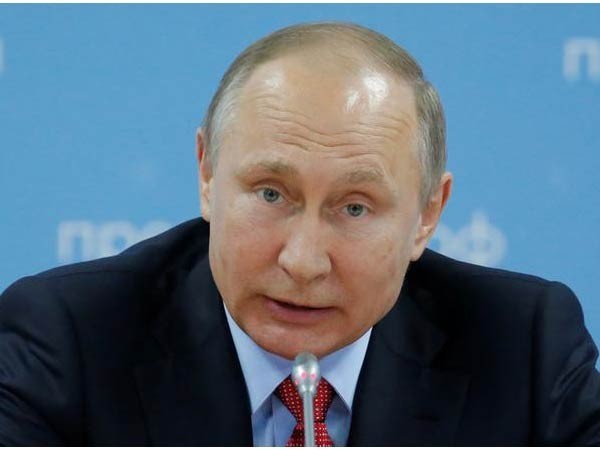Science News Roundup: Putin bestows award for courage on U.S. astronaut who survived rocket failure; Ten years after 'suicide' mission, NASA thirsts for lunar water

Following is a summary of current science news briefs.
Putin bestows award for courage on U.S. astronaut who survived rocket failure
Russian President Vladimir Putin on Tuesday bestowed a prestigious state award for courage on Nick Hague, the U.S. astronaut who survived a botched space launch last year. A Russian Soyuz rocket bound for the International Space Station malfunctioned two minutes after liftoff on Oct. 11, 2018, forcing its two-man crew of Hague and Russian cosmonaut Alexei Ovchinin to make an emergency landing.
Ten years after 'suicide' mission, NASA thirsts for lunar water
A decade after NASA sent a rocket crashing into the moon's south pole, spewing a plume of debris that revealed vast reserves of ice beneath the barren lunar surface, the space agency is racing to pick up where its little-remembered project left off. The so-called LCROSS mission was hastily carried out 10 years ago Wednesday in a complex orbital dance of two "suicide" spacecraft and one mapping satellite. It proved a milestone in the discovery of a natural lunar resource that could be key to NASA's plans for renewed human exploration of the moon and ultimately visits to Mars and beyond.
Battery pioneers who made mobile revolution possible win Nobel chemistry prize
Three scientists won the 2019 Nobel Prize for Chemistry on Wednesday for developing and refining rechargeable lithium-ion batteries which made the global information technology, mobile and fossil-fuel-free revolutions possible. American John Goodenough, at 97, became the oldest winner of a Nobel prize and shares the 9 million Swedish crown ($906,000 award equally with Stanley Whittingham from Britain and Akira Yoshino of Japan, the Royal Swedish Academy of Sciences said.
Paralyzed man hails 'feat' of walking again with robot exoskeleton
The French tetraplegic man who has been able to walk again using a pioneering four-limb robotic system, or exoskeleton, said walking was a major feat for him after being immobile for years. The French scientists behind the system, which was publicly unveiled last week, use a system of sensors implanted near the brain which sends signals to the robotic system, moving the patient's legs and arms.
Science of far-away planets and infant universe wins Nobel prize
Canadian-American cosmologist James Peebles and Swiss scientists Michel Mayor and Didier Queloz won the 2019 Nobel Prize for Physics on Tuesday for revealing the wonder of the evolution of the universe and discovering planets orbiting distant suns. Peebles, of Princeton University in the United States, was awarded half of the 9-million-Swedish-crown ($910,000) prize while Mayor and Queloz, from Switzerland's University of Geneva and Britain's Cambridge University, shared the rest.
(This story has not been edited by Devdiscourse staff and is auto-generated from a syndicated feed.)
ALSO READ
ANALYSIS-Climate verdict for Swiss women a warning for European states, oil industry
European court ruling puts cautious Swiss in climate bind
Canadian PM Trudeau extends Baisakhi & Puthandu greetings
BRIEF-Swiss International Air Lines Suspends Tel Aviv Service - WSJ
US and Iran had contact through Swiss intermediaries ahead of attack, US official says










